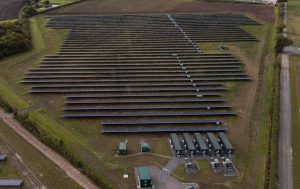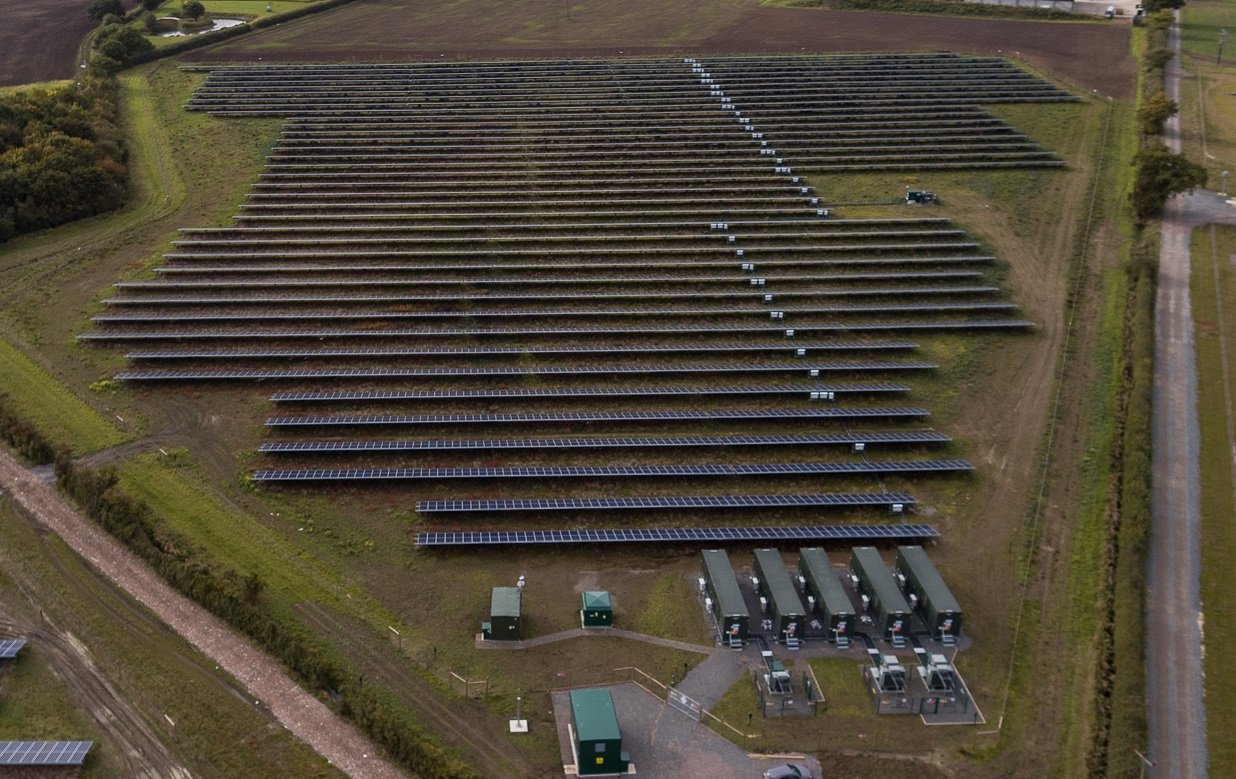The U.K. government was the first major economy in the world to pass laws to end its contribution to global warming by 2050. But to achieve this ambition is going to take some major changes – not least of which to the U.K.’s power network.
According to energy market analyst, Aurora Energy Research for the United Kingdom to reach net zero by 2050 will require solar and wind capacity to increase to more than 140 GW – a big jump from around 33 GW today.
The report estimates that as these renewable power sources form an increasingly large part of the generation mix, this, in turn, will call for up to 30 GW of short-duration energy storage to help balance the grid and a further 20 GW of longer-duration back-up capacity.

Balancing the grid
The role battery storage has to play in stabilizing the U.K. energy system continues to be the subject of intense scrutiny; something that only intensified in recent months when the country suffered the largest power outage it has seen in a decade.
With all future energy scenarios seeing demands placed on the grid as increasing, along with the need for greater flexibility, it is clear battery storage needs to form a vital part of the energy network of the future. Which raises an important question: How is the U.K. going to fund the growth in battery capacity needed to ‘keep the lights on’ while reaching net zero?
With the country relying on investors to fund the switch to a low carbon energy network, proving the financial case for such technologies remains key. It is not subsidy that is required, but certainty and unfortunately that’s something which has been seriously lacking in recent years.
Without joined up thinking and one clear strategy, the picture has been bleak and progress slow. In relation to storage, build pipelines ground to a halt, with the merchant risk viewed as too great and the stability of the U.K. as an environment for investment in clean energy being called into question.
But the tide is now turning! Positive noises are starting to be made by government and Ofgem, and climate change is riding high on the political agenda – public backing for making the U.K. ‘carbon neutral’ a policy priority reaching a whopping 85%.
Read more: PV Magazine




